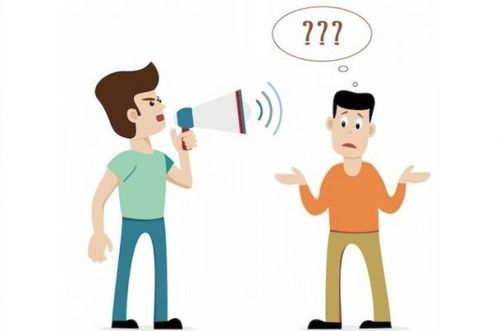This is an automatically translated article.
Posted by Master, Doctor Mai Vien Phuong - Department of Examination & Internal Medicine - Vinmec Central Park International General HospitalA sudden bout of vertigo can confuse you. You may feel lightheaded, groggy, or light-headed (vertigo). In addition, you may sometimes experience nausea or vomiting. But what conditions can cause sudden, intense attacks of vertigo, especially when they're accompanied by nausea or vomiting?
Read on to discover more about potential causes, possible remedies, and when to see a doctor.
1. Causes of sudden dizziness
There are many reasons why you suddenly feel dizzy. Most often, however, sudden dizziness occurs due to problems in your inner ear.
Your inner ear is important for maintaining balance. However, when your brain receives signals from your inner ear that don't match the information your senses are reporting, it can lead to dizziness.
Other factors can also cause sudden dizziness, including:
Circulatory problems such as: A sudden drop in blood pressure or insufficient blood flow to your brain, ischemic attack transient (TIA) or stroke Low blood sugar Anemia Dehydration Heat exhaustion Anxiety or panic disorder Drug side effects Sudden severe dizziness, often accompanied by nausea and even vomiting Vomiting is a characteristic symptom of certain diseases. Below, we will explore each of these conditions in more detail.
1.1. Benign paroxysmal postural vertigo (BPPV)
BPPV is a condition that causes a sudden, intense feeling of dizziness. It often feels like everything around you is spinning or swaying, or that your head is spinning inside. When dizziness is severe, it is often accompanied by nausea and vomiting.
With BPPV, symptoms almost always occur when you change the position of your head. An episode of BPPV usually lasts less than a minute. Although vertigo is short-lived, it can disrupt daily activities.
BPPV occurs when crystals in a specific part of your inner ear break off. Often the exact cause of BPPV is unknown. When a cause can be established, it is usually the result of:
Head trauma Inner ear disorder Injury during ear surgery Unnatural supine position for long periods, like lying in a dentist's chair When these crystals are separated, they will move into another part of the inner ear where they do not belong to you. Because the crystals are sensitive to gravity, the changes in the position of your head that can cause intense dizziness are unlikely to occur.
Treatment usually involves the doctor maneuvering your head in specific directions to reposition the detached crystals. This is known as canal repositioning, or Epley maneuvers. Surgery may be needed when this does not work. Sometimes, BPPV can go away on its own.

1.2. Meniere's disease
Meniere's disease also affects the inner ear. It usually affects only one ear. People with this condition may experience severe dizziness, which can lead to feelings of nausea. Other symptoms of Meniere's disease include:
Muffled hearing Sensation of fullness Tinnitus Hearing loss Loss of balance Meniere's disease symptoms can come on suddenly or after a brief episode of other symptoms such as muffled hearing or tinnitus. Sometimes, the episodes may be further apart, but other times they may occur closer together.
Meniere's disease occurs when fluid builds up in your inner ear. The cause of this fluid buildup remains unknown, although infection, genetics, and autoimmune reactions are suspected.
Treatment options for Meniere's disease include:
Medicines to treat symptoms of dizziness and nausea Limit salt or diuretics to help reduce the amount of fluid your body retains Steroid injections or the antibiotic gentamicin to relieve dizziness and lightheadedness Pressure therapy, in which a small device delivers pulses of pressure to prevent dizziness Surgery, when other treatments have not worked
1.3. Labyrinthitis of the inner ear and vestibular neuritis
These two conditions are closely related. Both are related to your inner ear inflammation.
Labyrinthitis occurs when a structure called the labyrinth in your inner ear becomes inflamed. Vestibular neuritis involves inflammation of your inner cochlear nerve. With both of these conditions, dizziness and lightheadedness can happen suddenly. This can lead to nausea, vomiting, and balance problems. People with labyrinthitis may also experience tinnitus and hearing loss.
The cause of labyrinthitis and vestibular neuritis is unknown. However, it is believed that a viral infection is possible.
Treatment usually includes medications that can relieve symptoms such as dizziness and nausea. If balance problems persist, treatment may involve a type of therapy called vestibular rehabilitation. This therapy uses different exercises to help you correct changes in balance.
1.4. Vestibular Migraine
People with vestibular migraine feel dizzy. Other symptoms may include nausea and sensitivity to light or sound. In some cases, the headache may not even be present.
The duration of these symptoms can vary from a few minutes to several days. Like other forms of migraine, symptoms can be triggered by stress, lack of rest, or certain foods.
What causes vestibular migraines is unknown, although genetics may play a role. In addition, conditions such as BPPV and Meniere's disease have been associated with vestibular migraines.
Treatment includes over-the-counter (OTC) or prescription medication to relieve migraine pain and symptoms of dizziness or nausea. Vestibular rehabilitation may also be used.

1.5. Orthostatic hypotension
Orthostatic hypotension is a sudden drop in your blood pressure when you change positions quickly. It can happen when you move from lying down to sitting up or from sitting up to standing.
Some people with this condition have no noticeable symptoms. However, others may experience symptoms such as dizziness and lightheadedness. Other symptoms may include nausea, headache, or even fainting.
Lower blood pressure means less blood is circulating to the brain, muscles and organs, which can lead to symptoms. Orthostatic hypotension is associated with neurological conditions, heart disease, and certain medications.
Orthostatic hypotension can be managed through lifestyle changes. This includes:
Slow position changes Sit down while performing daily tasks Change medications, if possible
1.6. TIA or stroke
Commonly known as a stroke, a transient ischemic attack (TIA) resembles a stroke, but symptoms usually last only a few minutes. It occurs when there is a temporary lack of blood to part of the brain.
Unlike a stroke, a TIA usually doesn't cause long-term damage. But it could be a warning sign of a more serious stroke.
Although rare, a TIA can be the cause of sudden dizziness. According to a 2006 study, about 3% of emergency department patients with sudden dizziness were diagnosed with a TIA.
Sometimes, sudden dizziness is the only symptom of a TIA. Other times, there may be other symptoms. These include:
Weakness, numbness, or tingling in the arms, legs or face, often on one side of the body Slurred speech or difficulty speaking Problems with balance Changes in vision Sudden, severe headaches Disorientation direction, confusion Although less common, sudden dizziness can also be caused by a stroke, specifically a brain stem stroke. With brain stroke:
Dizziness lasting more than 24 hours. Dizziness and loss of balance often occur together. Weakness on one side of the body is not usually a symptom. In more severe cases, symptoms can include slurred speech, double vision, and decreased level of consciousness. If you have any symptoms of a TIA or stroke, it's important to get medical attention right away. Your doctor will determine if you have had a TIA or stroke, or if your symptoms have another cause.
2. Self-care measures to relieve sudden dizziness
If you experience sudden dizziness or lightheadedness, consider taking these steps:
Sit down as soon as the dizziness strikes. Try to avoid walking or standing until the dizziness passes. If you must walk, move slowly and use an assistive device such as a cane, or cling to furniture for support. Once your dizziness has passed, remember to get up slowly. Consider taking an over-the-counter medication such as dimenhydrinate (Dramamine) to relieve nausea. Avoid caffeine, tobacco, or alcohol, which can worsen your symptoms.

3. When to see the doctor?
Make an appointment with a doctor or healthcare provider if you have sudden dizziness that:
Happens often Severe Lasts a long time Can't be explained by another medical condition or a medications To help diagnose the cause of your dizziness, your doctor will ask about your medical history and perform a physical exam. They will also perform a variety of tests including:
Balance and movement tests, which can help determine if specific movements are leading to symptoms Eye movement tests to detect movements abnormal eye movements related to inner ear conditions Hearing tests to check if you have hearing loss Imaging tests such as an MRI or CT scan to create detailed pictures of your brain Search Get emergency medical attention if you experience sudden dizziness accompanied by any of the following symptoms:
Numbness, weakness, or tingling sensation Severe headache Slurred speech or difficulty speaking Chest pain Heart palpitations Difficulty breathing Frequent vomiting Changes in your hearing such as ringing in your ears or hearing loss Blurred or double vision Confusion Fainting If you don't have a service provider, our OneVimec tool can help you Connect with doctors.
Many people experience dizziness for one reason or another. However, in some cases, dizziness may not be present and is intense. In these cases, you may also experience symptoms such as nausea or vomiting. Many of the causes of this type of vertigo are related to inner ear problems. Examples include BPPV, Meniere's disease, and vestibular neuritis.
See your doctor if you have frequent, severe, or unexplained dizziness or lightheadedness. Other symptoms such as a severe headache, numbness, or confusion could be a sign of another condition, such as a stroke, and require urgent medical attention.
Department of Medical Examination and Internal Medicine - Vinmec International General Hospital holds specialized functions in the examination and treatment of diseases related to the central nervous system (cranial, meninges, brain, cerebral blood vessels, nerves in the skull, pituitary gland, spine, discs, spinal cord) and peripheral nervous system (nerves and ganglia outside the brain and spinal cord).
Please dial HOTLINE for more information or register for an appointment HERE. Download MyVinmec app to make appointments faster and to manage your bookings easily.
Articles refer to sources: mayoclinic.org, nidcd.nih.gov, nimh.nih.gov, cdc.gov













